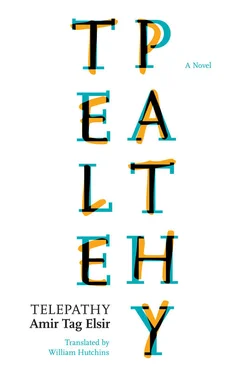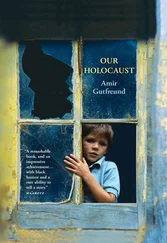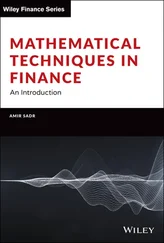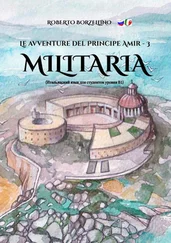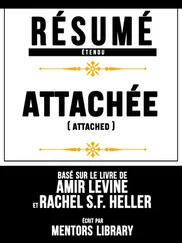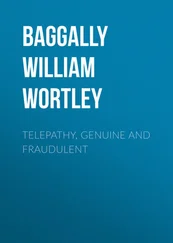Abd al-Qawi the Shadow says that in situations like these he affects the language of dotage and devises a lingo that is all obfuscation to discourage a would-be infiltrator from attempting to follow the path of creativity. But I wouldn’t do that, if only out of respect for a boy who had read my damn novel and who would never understand why it was the way it was. I would say his was an excellent story that fully demonstrated his talent. Thus I would soften the stern look on his face and the hostility in his eyes. I would award him a statement that might leave him feeling partial to me.
“Excellent, Shu‘ayb Zuhri. . an extremely beautiful story! You are indeed talented, and I hope to hear more from you on another occasion. Tell me: Do you know where we can find Nishan?”
I think he felt cheered, and he was definitely breathing in a more relaxed way, but he didn’t thank me or answer my question about Nishan. Instead, he asked me for my cell phone number, which I felt obliged to give him despite my intense vigilance regarding my phone and home. He recorded my number on his old Ericsson phone, which looked the worse for wear and almost defunct. He strode away rapidly, without demonstrating any desire to help in any manner. Before disappearing completely from sight, though, he pivoted abruptly and returned to us. His face had stiffened. Once he was near me, he said, “Man, you know what upset me most about Hunger’s Hopes ? It was the cover — absolutely the worst cover I have ever seen. Why did they put a picture of a slaughtered chicken on it? The novel’s not about a chicken — whether butchered or running free.”
Then he turned and departed once more, without awaiting my response.
I had actually had the same reaction. This boy — despite his vulgarity and use of gutter language in addressing me — seemed knowledgeable about book controversies and was the type of reader who begins perusing a book with its cover, exploring in depth the book’s presentation and analyzing it acutely. I remember that when this cover design was shown to me before publication, I asked what the point of the cover art was and how it related to the novel. The publishing house’s designer, who was almost seventy and whose name was Adam — people called him Father Adam, after the Prophet Adam — retorted rudely, “Writing a novel is one thing, and designing a cover for it is something else.” In short, I shouldn’t object to a cover I didn’t like, because I lacked the qualifications. The butchered chicken was an appropriate symbol for hunger. If I would just use as much imagination as I did in writing, I would discover the eyes of orphans, widows, and migrants gazing insatiably at this chicken from a distance. I didn’t argue with him and left him to his whispered misgivings and artistic hullabaloo. He was the most conceited graphic artist I have ever encountered.
We found Nishan’s shack easily this time, even though all the district’s structures which I had described sight unseen in the novel, resembled each other. I had created a mental map of the landmarks leading to it, and just in front of me was the corroded metal skeleton of what apparently had once been a truck, which might have been the one Nishan’s cousin Zakariya drove before he married an Ethiopian and migrated with her.
The shack was just as I had first seen it: filthy and foul-smelling. Books and ragdolls were scattered across the floor. A kerosene cooker lay haphazardly beside a lantern with a shattered glass shade. Aluminum pots and pans were strewn hither and yon. I noticed a bundle of old papers crammed inside one of the books. I pulled them out and dusted them off, sneezing. The penmanship was poor but legible. Presumably it was Nishan’s own handwriting, because he had learned to write at an advanced age. Contrary to my expectations, it wasn’t law school homework or any other type of homework. It was a botched attempt at drafting what the opening title proclaimed to be: “A Theory of the Ugliest Sin.”
I had never heard of a theory like this and never would have thought that anyone would have created one. A strange curiosity drove me to start reading what I assumed was the genuine raving of an insane man, who had become lost inside my novel’s text and was currently lost physically — regardless of whether these two forms of getting lost converged or not.
You talk a lot about this sin. To remain silent about it is uglier than the sin itself.
To love a girl who does not love you is a sin. For you not to love her is even uglier than the original sin.
To be hasty is a sin. For you not to be hasty is even uglier than the original sin.
I stopped reading and returned the papers to their place in the middle of the book. Then Muzaffar and I set off on a taxing tour of the district by foot. We investigated anything that could serve as a hideout — even the houses Hajj al-Bayt had once said were dens of iniquity where hellfire resided. Eventually we reached the abandoned railroad track where we had found Nishan the last time and grabbed him.
Boys were playing ball there and making a racket, and cheery girls were strolling through the ruins, but we found nothing more. A smokestack spewed black smoke in the distance; a secluded factory or refinery must be hiding there. When we had decided to leave the district and were passing by the carpets used for sales and purchases, we found Zuhri there with his folded piece of paper. He seemed to be reading “A Don Quixote with Absolutely No Connection to Cervantes” out loud to a pair of surly girls, one of whom had her arm slung over the other girl’s shoulder.
When eventually, after similar fruitless tours of other districts, we reached my house, my first thought was to turn on my computer to search for Murtaja on Wikipedia and his African prize of 3,000 dollars.
I typed Murtaja’s name into the search window on Google, in English in a number of different ways, and then added the word “crack” to this search request, but found no trace of any successful creative activity or prize — major or minor — associated with any Murtaja listed. I found Murtaja Tarbush, an atomic scientist, who was of Middle Eastern heritage, had worked in America for many years, and had died five months earlier of a heart attack. There was Murtaja Mahsud, a Pakistani for whom an international arrest warrant had been issued on charges of terrorism and belonging to al-Qa‘ida. He was not to be confused with Murtaja Abd al-Haqq who was a fortune-teller and psychic advisor, Murtaja Isa Kaluk, a notary public in love with the singer Shakira, whom he referred to as an icon of beauty and love, and other Murtajas who were mere names devoid of salient information, swimming in the vast expanses of Google.
I surmised that Zuhri had been exaggerating. Perhaps some short story actually had won something, but not a major competition by any means. I turned off the computer and went to sleep, leaving Muzaffar to chat with a woman on his laptop. Even so, the portrait of Linda shone in living color, as it always did when I pictured her in my mind. Linda the Shadow. I would soon, very soon, sketch her into my life.
The shadow rose from his relaxed, half-reclining position, removed his slim reading glasses, making his eyes seem slightly smaller than before, and held out a hand that was firm despite the blue veins that spread across its surface.
He didn’t seem to notice Muzaffar, or perhaps he had but hadn’t shown that he had, because Muzaffar was certainly within his field of vision.
He remarked, “You look extremely elegant, Writer — as if you had come to propose to a girl.”
I was slightly perturbed by his sentence and heard Muzaffar say, “As a matter of fact, Mr Abd al-Qawi, he has come for that reason.”
Читать дальше
